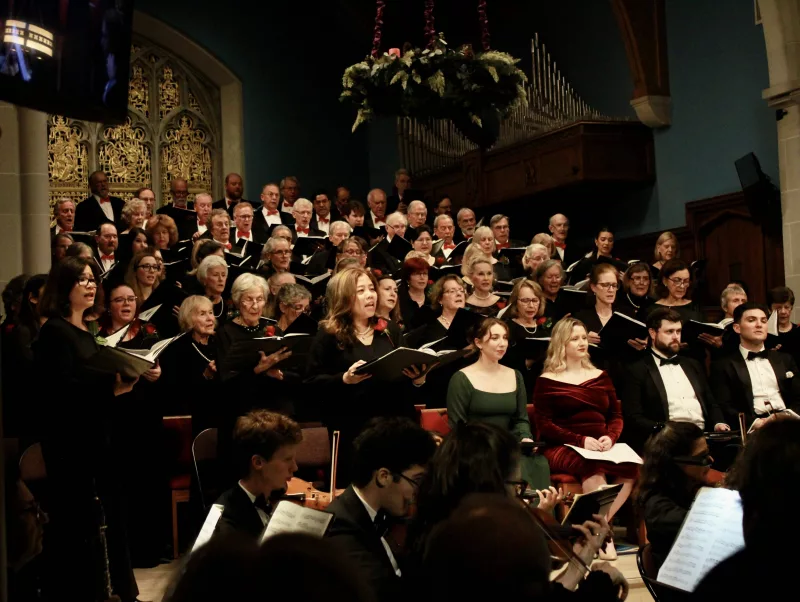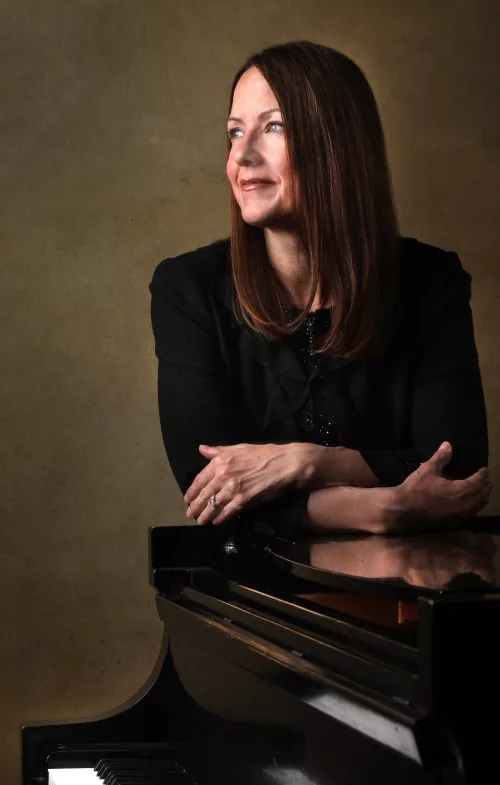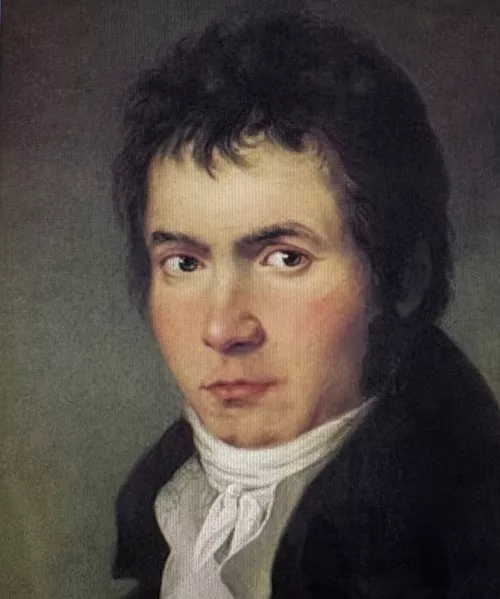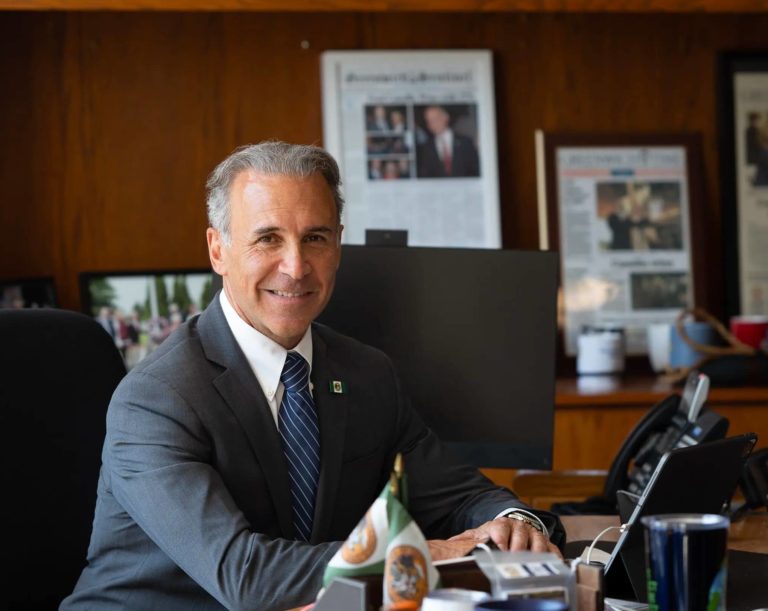
By Anne W. Semmes
The Greenwich Choral Society (GCS) has hit on something profound in its upcoming concert this Saturday afternoon, with a couple of Ludwig van Beethoven pieces and finale that addresses Beethoven dealing with the onset of deafness in his life.
The concert, at 4 p.m. at Manhattanville College, is a collaboration with 85 GCS choristers and 55 from the Westchester Choral Society, with the program title “Beethoven’s Unheard Triumph.” The story goes that Beethoven, in his mid-30’s, was dealing with his increasing deafness. He shared his pain in a letter to his two brothers. That letter never sent, now famously known as the Heiligenstadt Testament, named for where he wrote it in a village near Vienna, was indeed profound and has become a poem inspiring a soul-stirring song, “A Silence Haunts Me” that is the finale of the Saturday concert.
GCS conductor Dr. Christine Howlett, now in her second year, is a distinguished faculty member at Vassar who has taught music theory and voice and conducted the Vassar Women’s Chorus and Choir for decades. She discovered the song, “A Silence Haunts Me” in 2019 attending an American Choral Directors Association Conference. “I didn’t know anything about it,” she shares. The music was composed by Jake Runestad and the poem by his artistic partner Todd Boss. “So, the text is all about Beethoven losing his hearing…We could barely keep it together at the end of the performance, it was so moving.” She decided to share it with her music groups at Vassar, at the time of Covid. “We were still in masks, but I was so eager to do the piece, we did it anyway.”
“In the middle of the piece,” she continues, “Beethoven actually contemplates suicide, but then the ending of the piece, he comes back out of that sense of wanting to throw away his life and says, ‘No, no…Music and art is what gives me life.’ And the movement from this kind of depth of despair to the hope at the end is spectacularly written. It’s really beautiful.”
Howlett pauses, not wanting to share how movingly orchestrated the piece ends. “It’s all this description about how upset Beethoven is to lose his hearing, sort of why God? ‘Take my sight. Take my wings midflight but let me hear the searing roar of air before I score the ground/ Why Silence is God’s reply…’ He signs the letter, ‘Hear me and be well.’”
Howlett would collaborate with David Baranowski, the artistic director of the Westchester Choral Society, to bring together a program including two pieces by Beethoven composed years after that 1802 letter – his C Major Mass described as “a celebration of hope and inspiration,” and his Egmont Overture, Op. 84.
“It is unbelievable,” Howlett notes, “when you think Beethoven wrote the Symphony No. 9 in 1824 when he is completely deaf. Besides the Messiah, the most performed piece to this day is probably Beethoven 9.” She adds, “The coolest part of the reason for this program also is that the Greenwich Symphony Orchestra is doing Beethoven 9 on May 31and June 1, and we are singing with them.”
So, what has been the reaction from the GCS choristers in singing the Jake Runestad finale song, “A Silence Haunts Me”? “That’s a good question,” she responds. “I’ve introduced a little bit of Jake’s music, and I think it’s okay to say at first, they were not convinced… But it’s like anything, once you learn the music and you understand what he’s trying to do, it’s very exciting.” What surprised the choristers she says was “how dark it is… I mean, he’s contemplating suicide. And it’s hard to rehearse sometimes.”
Yet interspersed with the Beethoven selections are two other pieces chosen by Baranowski – Mendelssohn’s “Verleih uns Frieden” and Christopher Tin’s “Hope is the thing with Feathers [Emily Dickinson].” “It’s a beautiful texture change, because we use a smaller group of singers to do it. So, you’re not just listening to a big sounding choir. You suddenly get this very intimate sounding piece. It’s gorgeous.” And “the Mendelssohn piece he wrote when he was really young, and it’s all about ‘grant us peace.’ It was the perfect balm to these tricky parts in the Runestad song that were pretty tough sometimes, emotionally and musically.” But she adds, “The Runestad piece shouldn’t feel depressing at the end. It should just feel emotional, incredibly emotional… because all of us have our own health problems, right?”
So, how was it that Howlett’s sharing of “A Silence Haunts Me,” had so resonated with her young Vasser students. “Runestad’s music in general,” she noted, “is done a lot by high school and college choirs because they find his writing really appealing… It’s very approachable. It’s in English. There are so many themes in it. There’s this idea of depression, which unfortunately so many of our students suffer from at times. COVID changed a lot for our students in high school, actually for all of our young people. Being isolated, that’s what this piece is about and not being able to hear and not having people understand you. So, it makes sense that all ages would understand this piece and understand what was happening.”





